Oct 2017 1st Edition
Oct 2017 1st Edition Joy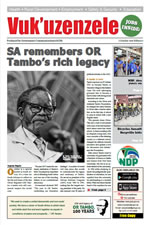
Translations
SA remembers OR Tambo’s rich legacy
SA remembers OR Tambo’s rich legacy Estelle GreeffOctober is a special month in South Africa. It’s a time for South Africans to reflect on the life and times of the late Oliver Reginald (OR) Tambo, a leader who still commands respect the world over.
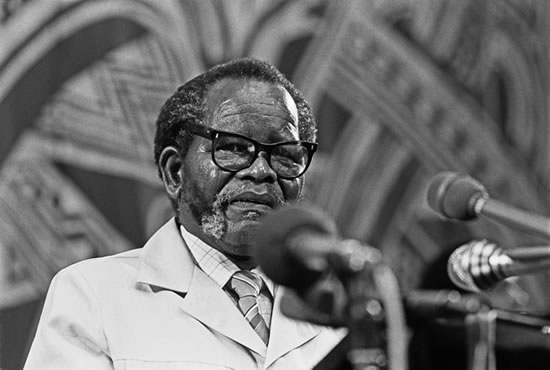 The year 2017 marks the centenary celebration of Tambo’s birth. He played an important role in liberating South Africa and was one of the founding fathers of our constitutional democracy.
The year 2017 marks the centenary celebration of Tambo’s birth. He played an important role in liberating South Africa and was one of the founding fathers of our constitutional democracy.
Government declared 2017 “The year of OR Tambo: celebrating our liberation heritage”. A number of events will take place this month to commemorate the legacy and centenary of Tambo.
He served as president of the African National Congress (ANC) from 1969 to 1991, making him the longest serving president of the party. He also enjoyed over 50 years of political activism in the ANC.
A leader is born
Tambo was born on 27 October 1917, as Kaizana Tambo, in Nkantolo village in the Eastern Cape. His rural upbringing groomed him to become a hard worker with strong moral standards and values.
According to the Oliver and Adelaide Tambo Foundation, he changed the name Kaizana to Oliver after a teacher asked him on his first day of school to come to school with a new English name.
“His parents chose Oliver. This and a host of encounters with some of his first teachers’ strict nature made him dread school. A chance meeting with an eloquent young man, who was a member of the debating society in a different school, changed his attitude towards education and ignited a love for discussion and debate," says the Foundation.
After school Tambo went to university. He graduated with a Bachelor of Science in Maths and Science from Fort Hare University. His life as an activist started at the university.
In 1942 while studying towards his postgraduate qualification in education, he was expelled from the university for participating in a student strike. When his former teacher heard of his expulsion he was offered a job as a Maths and Science teacher at St. Peter’s College offered.
His political life
During his time as a teacher in Johannesburg, Tambo was an active member of the ANC. He formed the Youth League and became its first national secretary in 1944.
Four years later, he became president of the Transvaal ANCYL and national vice-president of the organisation in 1949. He was also elected as a member of the National Executive Committee of the ANC.
In 1951 Tambo made history when he formed the first black law partnership with his great friend, Madiba.
Tambo led the ANC through challenging times. He was the longest serving leader in places like London and Zambia where the party operated, until 1990 when the South African government lifted the ban on the organisation.
During his time abroad he was instrumental in establishing ANC missions in at least 27 countries by 1990. "He helped lobby support for the ANC and raised the international reputation of the ANC to one of great prestige," says the Foundation.
After spending 30 years in exile, Tambo and his family returned home. Upon his return he spoke at the first ANC meeting in South Africa since it’s unbanning. He used the occassion to pass on the leadership baton to Mandela, who was elected as the National Chairperson of the ANC.
On 24 April 1993 Tambo died after a stroke.
Source: www.tambofoundation.org.za
Celebrating a visionary leader
A series of awareness creation programmes, including educational and celebratory activities, will take place across the country in the build-up to 27 October 2017. Thereafter, several legacy projects will be delivered to Mbizana, Eastern Cape, to benefit the local community.
Oliver Tambo – A Timeline
•27 October 1917
Oliver Tambo’s birthday.
•2 April 1944
Oliver together with William Nkomo, AP Mda, Walter Sisulu and Nelson Mandela founded the ANC Youth League.
•1 September 1944
Tambo elected the ANC's secretary.
•24 July 1951
Tambo qualifies as an attorney.
•5 December 1956
Tambo arrested, charged with treason and detained by the apartheid government.
•20 December 1956
Tambo released on bail during the Treason Trial.
•22 December 1956
Tambo marries Adelaide.
•27 March 1960
Tambo goes into exile.
•1 May 1960
Tambo arrives in Denmark after being invited there by the Danish Prime Minister.
•10 October 1960
Tambo’s first visit to New York.
•10 May 1963
Tambo leads an ANC delegation to Ethiopia for the formation of the Organisation of African Unity.
•10 October 1963
Tambo addresses the United Nations General Assembly Special Political Committee appealing for the freedom of all South Africans.
•25 April 1969
Tambo announces his resignation from the ANC at the Morogoro conference following personal attacks, but is persuaded to return.
•8 January 1985
Tambo calls on the South African people to ‘Render South Africa Ungovernable’.
•14 December 1990
The Tambo family returns from exile.
•23 April 1993
Tambo passes away.
Source: www.tambofoundation.org.za

Early childhood education is important
Early childhood education is important Estelle GreeffEarly Childhood Development (ECD) centres are the pillars of education and a good investment for unlocking a child’s potential.
This is according to the CEO of the National Development Agency (NDA) Thamo Mzombe.
“Understanding the investment on a child and unlocking the potential at a very early stage is important. As the NDA, we look at ECDs holistically in terms of development of a child from the mind to physical. This is an asset and if well nurtured at an early stage will yield great potential for our country," says Mzombe.
She adds that during the first 1 000 days of a child’s life their mind is capable of quickly absorbing important information.
Getting access to quality education at this stage is essential in terms of ECD which advocates that children who are exposed to ECD efforts must have access to quality food and an environment which allows potential growth.
“If we get the programmes of the ECDs right we would not suffer in entrepreneurial challenges, producing scientist because the child’s potential and resilience is built at this level," said Mzombe.
She adds that in order for children to flourish academically nutrition and a balanced diet are important.
One ECD centre, one food garden
The NDA promotes the idea of “One ECD centre, one food garden.” Food gardens provide fresh vegetables to school feeding schemes at community-based ECD facilities, home-based centres and rural communities.
The NDA also provides skills development and education in the benefits of good nutrition.
The NDA focuses mostly on ECDs in rural areas, informal settlements and farm areas where poverty levels are very high and parents have no means or access to structured ECD-based programmes.
Mzobe adds that her organisation focuses on empowering the management of an ECD, particularly in the areas of governance, financial management, fundraising, human resource management, report-writing and how to register with the provincial departments of social development.
“This assists centres to … comply with the norms and standards of the Department of Social Development," says Mzombe.
ECD centre infrastructure upgrades are also important element to ensure that learning happens in a safe environment.
Training for ECD Staff
Through the NDA ECD principals, supervisors, practitioners, cooks and governing body members are appropriately trained and skilled to benefit the centre’s programmes for young children.
Mzobe says ECD educators are also guided by a curriculum with standards to be achieved.
“Their curriculum covers most of grade R. We have our NPO-capacitated trainers that develop curriculum," concludes Mzombe.
Community members who would like to register their ECDs with the NDA can call 011 018 5500 or email: info@nda.org.za
News in brief
News in brief Estelle GreeffDeputy President opens Eastern Cape HIV/AIDS Centre
Deputy President Cyril Ramaphosa has officially opened the Vuyo Mbuli Empilisweni HIV/AIDS and Orphans Centre in Ndevana Eastern Cape.
The centre is a community initiative which started operations in 1999 with the help of the late SABC TV presenter Vuyo Mbuli.The centre – whose main focus is on HIV and Aids orphans – also works with caregivers of people who are on antiretroviral therapy and Tuberculosis treatment. The facility has been commissioned by the Department of Health to trace treatment defaulters in the area.
Working together to uplift communities
Working together to uplift communities Estelle Greeff
This year we have dedicated the Month of October to commemorate of the life and legacy of President Oliver Reginald Tambo - a leader, revolutionary, strategist and a visionary. During his lifetime Tambo stood for the unity of our nation.
Born in a rural and underdeveloped village of Nkantolo in the Eastern Cape Province, President Tambo is respected globally for his work ethic and desire to liberate South Africans from the yokes of colonial and apartheid regimes. This he did by living a selfless life. He sacrificed his family, his loved ones and his country to lead with an incomparable vision for a better South Africa we live in today.
OR Tambo lived and yearned for a South Africa that is free from poverty, hunger, strife, child and women abuse as well as many other scourges that Government continues to tackle head on through many of its programmes.
On the sidelines of the 72nd Session of the United Nations General Assembly in New York on 20 September 2017, I hosted, on behalf of South Africa, Heads of State and Government as well as other dignitaries at the Centenary Anniversary Reception in honour of this global icon of the struggle against apartheid in our country.
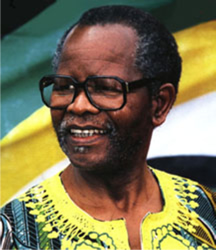 A major celebration is also scheduled to take place on 27 October on the birthday of OR Tambo.
A major celebration is also scheduled to take place on 27 October on the birthday of OR Tambo.
October is also one of the busiest months on the calendar of Government to deliver services to our people. First, it marks a time in the financial year circle where we deliver the medium-term budget policy statement. Second, and equally important, this is the time when we take Parliament to the people through unmediated interaction with constituencies and the communities that elected our public representatives.
Thirdly, October is also our Breast Cancer Awareness Month, and we will be making a call to all our citizens to take necessary precautions to prevent breast cancer, among others, and spread the message about this disease.
Finally, this month has also been designated by the Social Development Department as the period during which we reach out to meet and interact with the poor citizens of South Africa, who rely on the Department for their livelihood and sustenance through a number of social grants. Through our reaching out to poor communities, we seek to address the triple challenges of poverty, unemployment and inequality under the theme, "Working Together to Build Caring and Sustainable Communities for All."
This year, Social Development Month will officially kick-start with International Day of Older Persons which is celebrated annually on 01 October. The day will be officially commemorated in Ga-Rankuwa Township, in the Gauteng Province, under the United Nations theme, "Stepping into the future: tapping the talents, contributions and participation of older persons in society."
The Department of Social Development is working together with its entities, the South African Social Security Agency (SASSA) and the National Development Agency (NDA) to support government's initiative of restoring the dignity of our people throughout the month. The aim is not only to meet and engage rural communities but also identify and fill poverty gaps which were caused by among other factors, legacies of colonialism and apartheid, and marginalisation from resources. This is conducted in line with government's commitment to address the high levels of poverty, underdevelopment and malnutrition.
Our government acknowledges that poverty remains one of the worst human tragedies in the world especially in the African continent. Despite its status as Africa's most advanced economy, South Africa, similar to its poor neighbouring countries, is still battling with high levels of poverty, unemployment and inequality. In the fight against poverty, the Department of Social Development continues to implement programmes that prevent inter-generational transmission of poverty by working in partnership with Non-Governmental Organisations (NGOs), among others.
Through the department, Government reaches out to rural and poor communities via Project Mikondzo. Project Mikondzo is a service delivery tool that aims to improve the lives of ordinary citizens. Through this project, government also encourages women to unite and form cooperatives so that they can access funding through the Department of Small Business Development. The department makes big invests in cooperatives to grow our economy as well as for cooperatives to make a difference in the lives of unemployed women as they become economically empowered.
In addition, the protection of vulnerable groups, in particular, women, children and people with disabilities remain the central focus of government's objectives of improving the living conditions of the poor this month, while also emphasizing that it cannot be the sole responsibility of government to shield, embrace and protect vulnerable South Africans. It is a task that we must perform, working together with the private sector as well as non-governmental organisations.
We therefore call on all South Africans, in particular, parents, teachers, as well as members of the South African Police Service, Teachers, Child Caregivers, Guardians, NGOs and Faith Based Organisations to play their part and contribute towards the protection of vulnerable women, children and persons with disabilities.
We would like to call on all South Africans to work together with Government to uplift our people from poverty, fight inequality and create more jobs for our people in the Month of October in the spirit of our late leader Mr Oliver Reginald Tambo.
Joburg swimming pools ready for summer
Joburg swimming pools ready for summer Estelle GreeffLocal Government
With summer around the corner numerous swimming pools within the City of Johannesburg have been revamped, to ensure that they are in a good condition and ready for use by all residents.
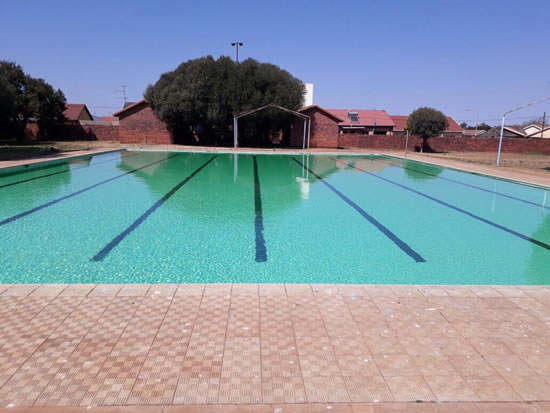 City of Johannesburg Community Development MMC Nonhlanhla Sifumba said that the City wants to create an experience for locals.
City of Johannesburg Community Development MMC Nonhlanhla Sifumba said that the City wants to create an experience for locals.
“As a city, we are aware that not everyone has the luxury of having a swimming pool in their backyards. Also we want to ensure that children learn how to swim at an early age and are able to create some sort of an experience for themselves.
“We also feel that swimming pools are one of the resources that can be used to keep children off the streets and away from social ills, especially during school holidays," said Sifumba.
The revamps were conducted on 54 of the 58 swimming pools. Work on the pools included replacement of broken tiles, painting, fixing toilets, changing rooms, servicing fire extinguishers and servicing of filters.
Sifumba encouraged residents to use the facilities for recreational purposes in order to enable those who can’t swim to learn the sport and those who can, to sharpen their skills.
“I’d be happy if we were to produce some professional swimmers from community swimming pools who will participate in the Olympics sometime in the future,” said Sifumba.
Meanwhile, the City of Joburg together with the Johannesburg Metro Police Department, will during the festive season, run a safety campaign to ensure residents are safe when using swimming pools.
Young women graduate in furniture making
Young women graduate in furniture making Estelle GreeffAs part of eThekwini Municipality’s women empowerment programme, 15 young women are now qualified carpenters after they successfully completed a five-week furniture making and upholstery training course.
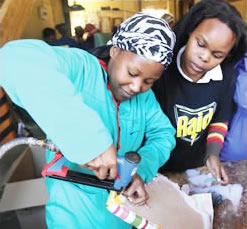 The group was exposed to furniture making skills for chairs, side tables, pedestals, picture frames and couches. They were also taught technical drawing, material cutting tips, how to choose fabric and were given tips on health and safety in the workplace.
The group was exposed to furniture making skills for chairs, side tables, pedestals, picture frames and couches. They were also taught technical drawing, material cutting tips, how to choose fabric and were given tips on health and safety in the workplace.
Sanelisiwe Mtshaka (24) from Ward 14 in Dassenhoek said: “I still cannot believe that I manufactured a chair and other furniture on my own. It has always been my dream to be involved in furniture making.”
The training was sponsored by the Municipality’s Business Support, Tourism and Markets Unit and was facilitated by Injiya Training and Projects who have years of experience in the sector.
The Municipality’s Business Development Manager Nonku Mthembu said the training is part of the City’s commitment to empower the youth and women.
“To further showcase the beneficiaries’ final products, we will sponsor them to exhibit in the upcoming Durban Business Fair during the Essence Festival.”
Mthembu said this platform will market the beneficiaries’ work to more than 60 000 national and international delegates expected to attend the festival.
This, said Mthembu, would result in business linkages. Mandla Luthuli, founder of Injiya and tutor said the group was very committed.
“The fact that they were able to do so much in a space of five weeks proves the determination of our youth when given an opportunity.”
Deputy Chairperson for the Economic Development and Planning Committee Councillor Nkosenhle Madlala said: “To demonstrate our commitment in empowering women, the committee recently set aside R1.3 million for 2017/18 financial year towards their development.”
Councillor Madlala said they want to see more women working in male dominated sectors hence the Municipality was facilitating training opportunities such as furniture making. He said this is one of the City’s efforts to address inequality.
*Nonduduzo Ngcobo works for the eThekwini Municipality.
A breakthrough for cervical cancer testing
A breakthrough for cervical cancer testing LondekileBreast and cervical cancer are two of the leading causes of death among women. A shift in policy means that government is giving women access to new and better methods of detection and treatment.
The Department of Health has introduced a new and improved method for detecting cervical cancer called Liquid-Based Cytology (LBC). 
LBC is a technique used to collect a cervical smear using a broom-like device and preserving it in liquid until it is analysed in a laboratory.
This method is different from that of the pap smear because a spatula or broom-like device is used to collect cells in the cervix.
Dr Manala Makua, Director for women's health and genetics at the Department of Health, explains that, unlike the pap smear method, with LBC one can collect a cervical smear even if the patient is menstruating or has an infection in the uterus.
Both the pap smear and LBC technique will be used in clinics and hospitals across the country.
During the official launch of government’s cervical and breast cancer policies aimed at addressing high mortality, caused by these diseases, the roll out of the LBC technique was highlighted.
LBC available at Frere and Dora Nginza hospitals
The launch took place recently at East London’s Frere Hospital which has started rolling out LBC programme.
Chief Executive Officer of Frere Hospital Rolene Wagner said the hospital would now use the LBC method as opposed to the usual pap smear when testing women’s cervixes for cancer.
“The brush technique allows practitioners to reach the innermost parts of the cervix to collect cells from there. This has been proven to be more effective than the pap smear where only a certain part of the cervix can be reached,” Wagner said.
Breast and cervical cancers are among the leading causes of deaths among South African women, especially women aged 30 years and older.
While the cervical cancer prevention and control policy will help prevent the disease by promoting a healthy lifestyle and giving women access to Human Papillomavirus vaccination, the breast cancer control policy will focus on breast cancer awareness, early detection, treatment and care.
The Department of Health is working on a 10-year plan to give women access to treatment by equipping hospitals with the necessary facilities to care for and support patients with cancer.
Who can get cervical cancer?
Women who are sexually active can get cervical cancer.
Points to remember:
- Mutual one-partner relationships reduce the risk of cervical cancer.
- Use barrier contraception during sexual intercourse - either a male or female condom.
- See your doctor or your primary nurse if you have any unusual symptoms, such as bleeding after intercourse or an excessive or offensive vaginal discharge.
Bicycles benefit Bergville kids
Bicycles benefit Bergville kids lebangQhubeka and Volkswagen believe that less time travelling to school means more time to learn, more time to play and more time with family.
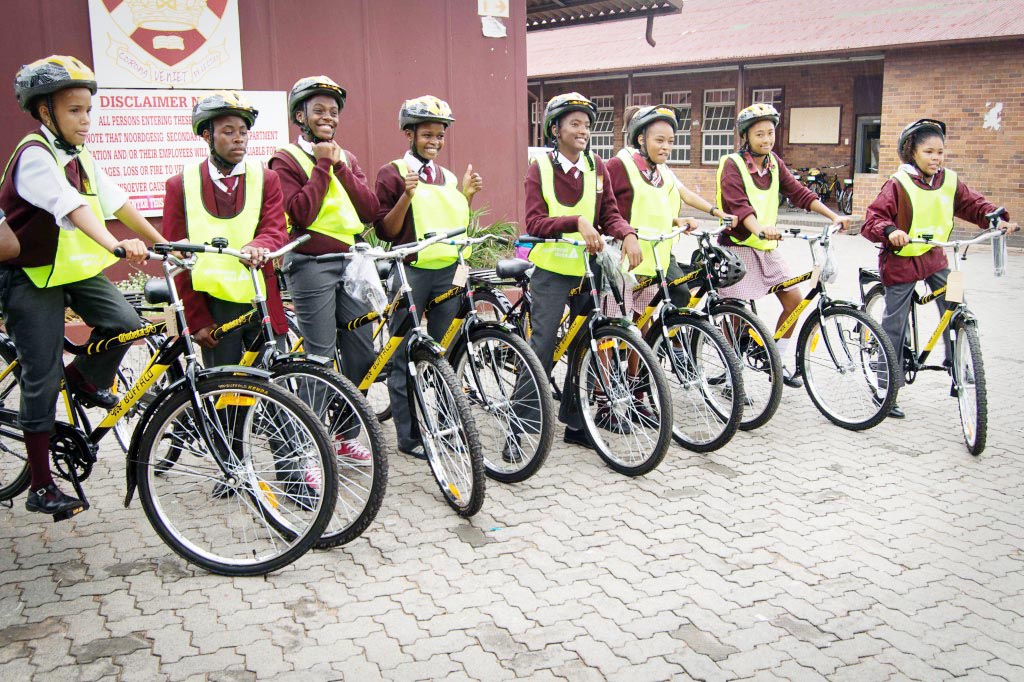 Missing classes because of the long distances between their homes and school is a thing of the past for learners from four disadvantaged schools in Bergville in the western part of KwaZulu-Natal.
Missing classes because of the long distances between their homes and school is a thing of the past for learners from four disadvantaged schools in Bergville in the western part of KwaZulu-Natal.
Volkswagen, in partnership with Qhubeka and World Vision, donated 600 bicycles to Tholithemba, Maqoqa, Ubulinga and Qhozo high schools as part of the Bicycle Education Empowerment Programme.
Learners travel up to 5km to school.
Speaking to Vuk’uzenzele Qhubeka founder Antony Fitzhenry said the organisation has donated 3 000 Blue Bikes to children across South Africa since 2005.
“Qhubeka and Volkswagen believe that less time travelling to school means more time to learn, more time to play and more time with family. Education is not only for the Department of Basic Education but is for all of us.
“In May 300 Blue Bikes were donated here in Bergville, to add to the 300 we are donating today. We will be distributing a total of 1 100 bicycles in 2017,” he said.
Fitzhenry said after donating their first batch of bicycles the recipients had shown a passion for cycling.
“Six learners won the local Bergville cycling race. Volkswagen is taking their commitment a step further this year. With a support team in place Volkswagen will be supporting these six youngsters on a brave and challenging journey on ‘the road to 947’ to take part in Gauteng later this year,” he said.
One of the beneficiaries, Gugu Zwane (15) who is in Grade 10 at Maqoqa High School, said they used to walk long distances which resulted in them missing some of the lessons, but now life has changed.
“The bicycles will not only serve as our means of transport to school but will also encourage us to attend school regularly,” she said.
Maqoqa school principal Madoda Dube said they are very grateful for the support from Volkswagen and Qhubeka.
“The performance of the learners has improved drastically after the first donation. We will continue making sure that these bicycles are taken care of in order to help other learners following them,” he said.
Calling all aspiring artisans
Calling all aspiring artisans lebangThe WorldSkills international Competition highlights and encourages excellence in skills and introduce young people to various skilled careers.
 The Department of Higher Education and Training is calling on aspiring artisans to enter the WorldSkills International Competition to be held in Russia in 2019.
The Department of Higher Education and Training is calling on aspiring artisans to enter the WorldSkills International Competition to be held in Russia in 2019.
WorldSkills advocates skills excellence and development in vocational, technological and service-oriented careers internationally.
Every two years the WorldSkills International Competition brings together competitors and experts and industry, education and government leaders from around the world.
South Africa is one of the countries affiliated to the WorldSkills International Competition. The Department of Higher Education and Training champions the WorldSkills South Africa initiative which supports the department’s Decade of the Artisan Campaign.
The Competition was established in April 2013 with the aim of encouraging more young people to see artisanship as a career of choice to ease the skills shortage in South Africa.
Young individuals who are eligible to apply are those working or training at companies or in industry along with students from TVET colleges, universities of technology and private colleges.
Alessandra Jester Manengena (22) from Polokwane will be taking part in the 2017 WorldSkills Competition in October in Abu Dhabi.
She is studying Chemical Engineering at the Uiversity of South Africa and will be representing South Africa as a competitor in the water technology category.
Manengena said participating in the competition can develop the country’s youth.
“The issue of artisan development is top priority for government as there is a shortage of skilled people in our country,” said Manengena.
She added that the project can make a difference and help the country achieve the National Development Plan goals of producing 30 000 artisans a year by 2030.
Team South Africa, which consists of 22 young people, will be flying to Abu Dhabi in October.
Manengena said she is looking forward to meeting new people and learning about different cultures.
“I am also sure that I will learn more about the water tchnology skill in which I am participating.
Young individuals are encouraged to enter the 2019 competition for one of the following skills:
• Welding
• Electrical installations
• CNC turning
• Plumbing and heating
• Water technology
• Mechatronics
• Mobile robotics
• Refrigeration and air conditioning
• Automobile technology
• Car painting
• Auto body repair
• Bricklaying
• Plastering and dry-wall systems
• IT network systems administrator
• IT software solutions
• Graphic design
• Cooking
• Restaurant services
• Hairdressing
• Beauty therapy
WorldSkills South Africa has registered in the competition.
Participants may not be older than 22 years in 2019 and must not have participated previously.
How to enter No applications will be accepted after 15 December 2017.
Those who are interested in entering can visit http://www.worldskillssa.dhet.gov.za/Default.aspx#home
Care centres offer comfort to rape victims
Care centres offer comfort to rape victims lebangSouth Africa has a widely-admired network of centres for assisting victims of sexual assault and violence.
 Comfort. That’s just one of the needs of victims of domestic violence and rape, and that’s what Thuthuzela Care Centres across the country offer them.
Comfort. That’s just one of the needs of victims of domestic violence and rape, and that’s what Thuthuzela Care Centres across the country offer them.
Thuthuzela is an isiXhosa word meaning “comfort”, and the centres are one-stop facilities established as part of the country’s anti-rape strategy. The aim is to reduce secondary victimisation of women and children, by treating victims with care, respect and dignity.
The National Prosecuting Authority (NPA) runs the Thuthuzela project as part of its Sexual Offences and Community Affairs Unit. A further aim is to improve conviction rates.
The centres operate in public hospitals, and are usually close to sexual offences courts, which have skilled prosecutors and magistrates, social workers, Non-Government Organisations and police on hand to ensure the victim is counselled, and best represented in court. There are over 50 centres countrywide.
“Thuthuzela’s integrated approach to rape care is one of respect, comfort, restoring dignity and ensuring justice for children, women and men who are victims of sexual violence,” reports the United Nations Childrens Fund (Unicef).
Thuthuzela care centres provide the following services to victims:
- A quiet, private space, where a nurse and doctor are available to conduct a medical examination, after a consent form has been signed
- Drawing blood samples and conducting DNA tests
- Giving the victim an opportunity to bath or shower, and change into clean clothes
- An investigation officer to take a statement from the victim
- A nurse offering counselling and follow-up visits, treatment or medication for sexually transmitted infections such as HIV
- Medication for the victim who is transported home or to a place of safety, if necessary
- Consultations with a specialist prosecutor, and court preparation by a victim assistant officer
- An explanation of the progress of the trial by a case manager.
There are over 40 sexual offences courts in the country, especially set up to treat victims in a sensitive manner while their cases are processed.
Each has a special court room, a separate waiting room for adult and child victims, and a special testifying room with CCTV equipment to ensure that victims don’t have to face their attackers.
“They are a critical part of South Africa’s anti-rape strategy, aiming to reduce secondary trauma for the victim, improve perpetrator conviction rates and reduce the lead time for finalising cases,” said Advocate Thoko Majokweni, Director of the Sexual Offences and Community Affairs Unit at the NPA.
For further information on Thuthuzela Care Centres call the NPA at 012 845 6000
Erratum: Department of Social Development
Erratum: Department of Social Development JoyERRATUM
Kindly note that the total cost-to-employer salary package for the post of Deputy Director-General: Inspectorate for Social Assistance that was advertised in the Vuk’uzenzele of 1 August 2017 is R1, 370,973.00 p.a. and not R1, 689,750.00 p.a. as stated in the advertisement.
Apologies for any inconvenience caused.
Expo unearths young talent
Expo unearths young talent lebangThe future looks bright for young scientist Phemelo Motloba from the North West.
 Motloba (17), from rural Lagkraal in the North West, will be competing for a chance to win first prize, when he represents his region at the International Science Fair (ISF) in October.
Motloba (17), from rural Lagkraal in the North West, will be competing for a chance to win first prize, when he represents his region at the International Science Fair (ISF) in October.
This after the Grade 11 learner from Sedibelo Secondary School found a way to generate electricity from a local plant known as Mokura (the castor-oil plant or ricinus communis) by extracting oil from it.
The plant, which can be found in all provinces, is extremely poisonous, and competes with indigenous pioneering species, especially in watercourses.
Motloba got the idea to investigate how this plant can be used more usefully after noticing how local community members regularly cut and burnt it down.
He entered his project into the Bojanala Regional Eskom Expo for Young Scientists and titled it “Alternative energy from the toxic shrub” which proposes and shows how it can be put to good use.
“This is not my first time entering the competition. I have been competing in the Eskom Expo since 2014, but this is the first time that my project has received gold medals both at district and regional level. My perseverance has yielded good results,” he said.
The Bojanala Regional Eskom Expo was established in 2003 and is one of 35 regional expos held annually in all provinces in South Africa. Motloba was one of 203 learners from all over the province who filled up the Tlhabane Resource Centre.
“This year, the region has gained nine new schools. Of the nine schools gained, five are from deep rural areas of the province with limited resources. The biggest highlight was that 23 of the schools that participated at regional level have been participating for the past three years without fail,” said Eskom Expo Provincial Coordinator, Mmabatho Moloedi.
Through the expo learners are exposed to the exciting world of science and the many career opportunities in Science, Technology, Engineering, Mathematics and Innovation.
Gautrain goes full steam ahead
Gautrain goes full steam ahead LondekileSince the Gautrain first went into operation in June 2010, it has transported almost 80 million passengers between Johannesburg, Pretoria and OR Tambo International Airport.
“The Gautrain has become a mode of choice for those who use it on a daily basis. It is safe, convenient, quick, reliable and offers value for money,” said Jack van der Merwe, CEO of the Gautrain Management Agency.
The 80km Gautrain route, with stations in downtown Johannesburg, Rosebank, Sandton, Marlboro, Midrand, Centurion, Pretoria and Hatfield, plus a route to the airport via Rhodesfield, opened three days before the World Cup in 2010. It was completed in 2012.
Gautrain fact file
The Gautrain:
- Is serviced by 125 feeder 60-seater buses, and 12 25-seater buses
- Runs underground for 15km, and 65km above ground
- Contributed R20 billion to Gauteng’s GDP during construction
- Created 121 800 jobs during construction, running from 2006 to 2012
- Has 24-hour security, with over 600 CCTV cameras and over 400 security guards at stations, car parks and aboard the trains
- Uses a smart card, allowing seamless transfers between the train, buses and parades
- Contributes R1.7 billion to Gauteng’s economy each year, of which R617 million goes to poverty alleviation
- Has transported almost 80 million passengers since June 2010
- Creates four jobs each year for every R1 million in operational expenditure
- Employs 6 000 people (2017)
- Saves 10-12 working days each year as it is eight times faster than cars on congested roads
- Links to Metrorail trains at Park, Pretoria and Rhodesfield stations
- Plans to put 12 new trains on the tracks over the next three years, adding to its 24 trains
- New routes will link Jabulani to Cosmo City, Roodepoort, Mamelodi, Fourways, Randburg, Lanseria, Irene, Tshwane East, and Boksburg
- Estimates that the new routes will create 10 000 jobs, with R206 million going to low income households in incubation and upskilling programmes
New routes
As a result of its growth, new routes are being planned to broaden the Gautrain’s reach in Gauteng. A feasibility study that has been conducted recommends the following network extensions:
- A link between Jabulani via Cosmo City and Samrand to Mamelodi, with stations at Roodepoort, Little Falls, Fourways, Sunninghill, Olievenhoutbosch, Irene, Tshwane East and Hazeldean
- A link between Sandton and Cosmo City with a station at Randburg
- A link between Rhodesfield and Boksburg, with a station at the East Rand Mall and a possible link-up with the OR Tambo International Airport Midfield Terminal Development.
- A future link from Cosmo City to Lanseria Airport.
Get Out, Stay Out
Get Out, Stay Out lebangThe Gauteng Department of Community Safety’s rehabilitation programme is ensuring that inmates who have served their time at correctional centres leave as responsible citizens.
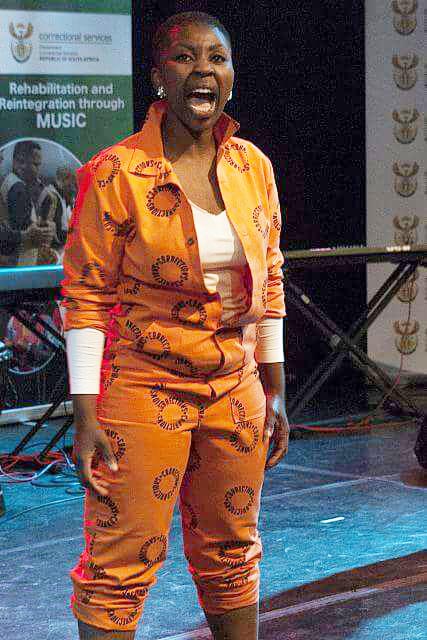
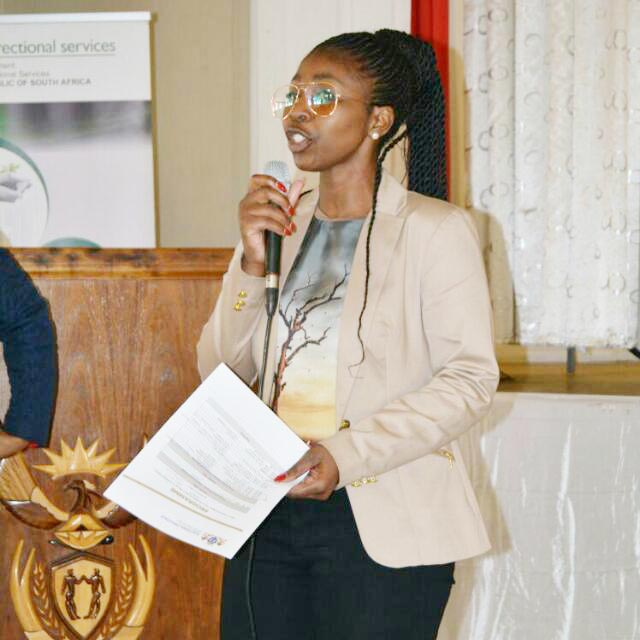 Morwesi Theledi (34) is a former bank employee whose career blossomed at a very young age. By the age of 25 she was a senior supervisor at a major bank in Dube, Soweto.
Morwesi Theledi (34) is a former bank employee whose career blossomed at a very young age. By the age of 25 she was a senior supervisor at a major bank in Dube, Soweto.
Theledi’s life changed when one of her regular customers started buying her gifts and giving her money disguised as tips for a job well done.
“The love of money drew me closer to these guys. They used to give me tips and used to pay my debts. Little did I know that this was a crime syndicate.”
In 2008, she was approached by the same customers to defraud the bank.
“At first I said no, but because I had already accepted various gifts and tips from them I had to pay.”
The syndicate wanted her to transfer about R3 million to a fraudulent account. At first she protested, but their threats made it hard for her to refuse.
“Their last threat was in December 2009 when the two guys were standing outside my yard describing what my son was wearing. They said if I don’t make the transaction it will be the last time I see my son.
“Losing my son was not an option.”
Reluctantly she followed their instructions.
“I went into the system and transferred R2.7 million and set R300 000 aside. She said she delayed authorisation of the transaction.
“After an hour I decided to block the account by increasing the amount to R27 million. This was the biggest mistake of my life.”
After realising what she had done the syndicate reported her to the police.
“I was detained at the Monder Police Station and underwent a two-year trial while detained at Johannesburg’s Medium B Correctional Centre in Naturena.”
In 2012, she was sentenced to 10 years’ imprisonment.
While detained at a correctional centre, Theledi took part in the Gauteng Department of Community Safety’s rehabilitation programme called Get Out and Stay Out (GOSO).
The programme aims to ensure that inmates who have served their time in correctional centres get involved in activities that will lead them to become permanently corrected and responsible citizens.
Gauteng MEC of Community Safety Sizakele Nkosi–Malobane said this programme has also helped men who were previously incarcerated for cases, such as sexual offences, rape and domestic violence. These men are part of a programme called Men as Safety Promoters (MASP)
“As a department we are also actively involved in various programmes that discourage gangsterism and substance abuse by mobilising inmates to participate in sports and cultural activities,” said MEC Nkosi–Malobane.
Giving children a head start
Giving children a head start LondekileAs part of government’s commitment to give children access to early childhood development (ECD), the KwaZulu-Natal Department of Social Development is increasing the number of ECDs.
Improving children's access to education was close to OR Tambo's heart. He believed that children should be given the skills they need to prepare them for a future with dignity.This year South Africa marks the centenary celebration of the birth of OR Tambo. 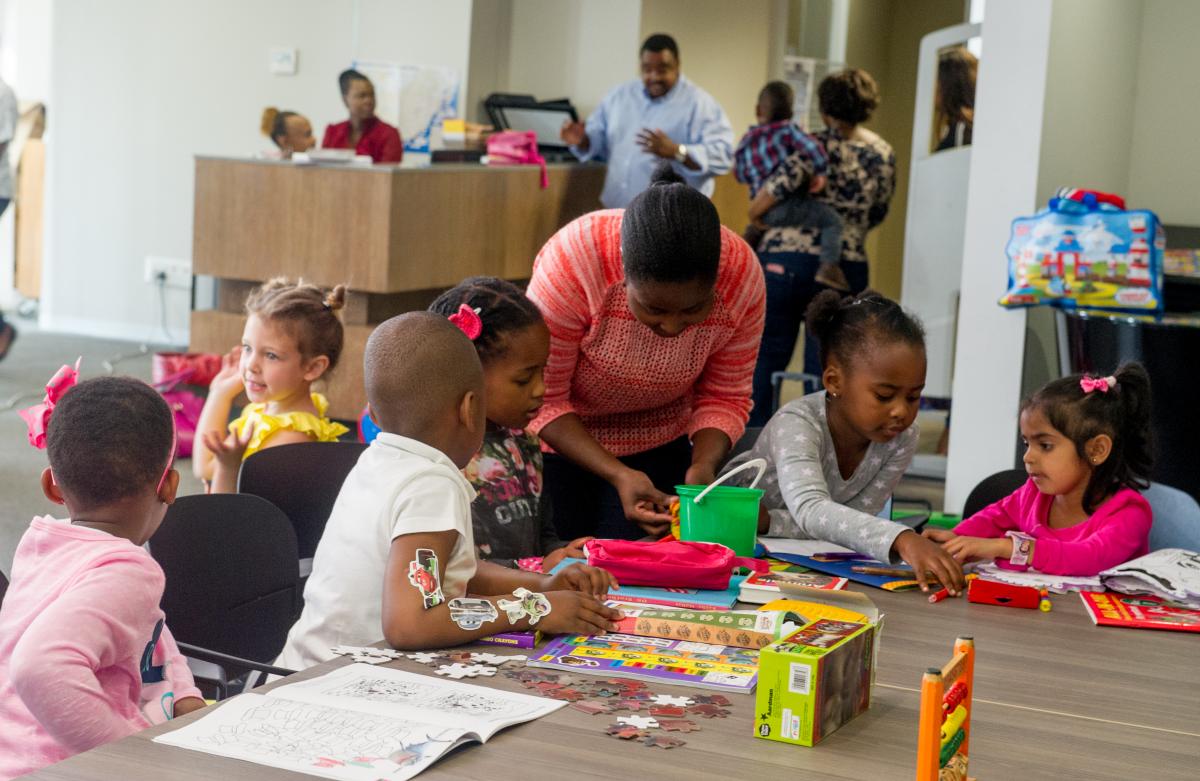
Tambo was passionate about education. After graduating with a BSc degree in Physics and Maths, Tambo spent 10 years working as a Maths teacher at St Peter's Secondary School in Jannesburg. Those that were taught by Tambo describe him as an inspiration to other educators and a teacher who had a distinctive impact on his learners.
Government has stepped up interventions to ensure that all young children, including those in deep rural areas, are enrolled at Early Childhood Development (ECD) centres countrywide.
ECD plays an important role in ensuring that children reach their potential. The National Development Plan (NDP), which is government’s plan for dealing a blow to the triple challenge of poverty, unemployment and inequality by 2030 calls for a strong educational system spanning early childhood development, primary, secondary, tertiary and further education.
This is crucial for addressing poverty and inequality.
The Ikusasalethu ECD in KwaNongoma, KwaZulu-Natal, was opened recently. It will ensure that children from the area have access to quality education from an early age.
The state-of-the-art centre has room for 30 children.
It boasts classrooms, a kitchen, dining room and toilet facilities, among others. When Minister of Social Development Bathabile Dlamini launched the centre she said access to ECD centres is no longer a privilege but a priority.
“By attending ECD centres, these children will have a lifetime opportunity of receiving a good foundation in their lives and make them better citizens with potential of moving South Africa forward”.
The Minister explained that ECD centres are important tools that enable government to provide quality basic services such as nutritious food, and quality education to children during the foundation phase of their education.
“Children who attend ECD centres are protected from various social ills including rape, child abuse, child trafficking, child neglect and exploitation,” said Minister Dlamini.
Over 800 000 children access ECD services. Of this number, more than 500 000 children receive a subsidy of R15 a day for 264 days a year. 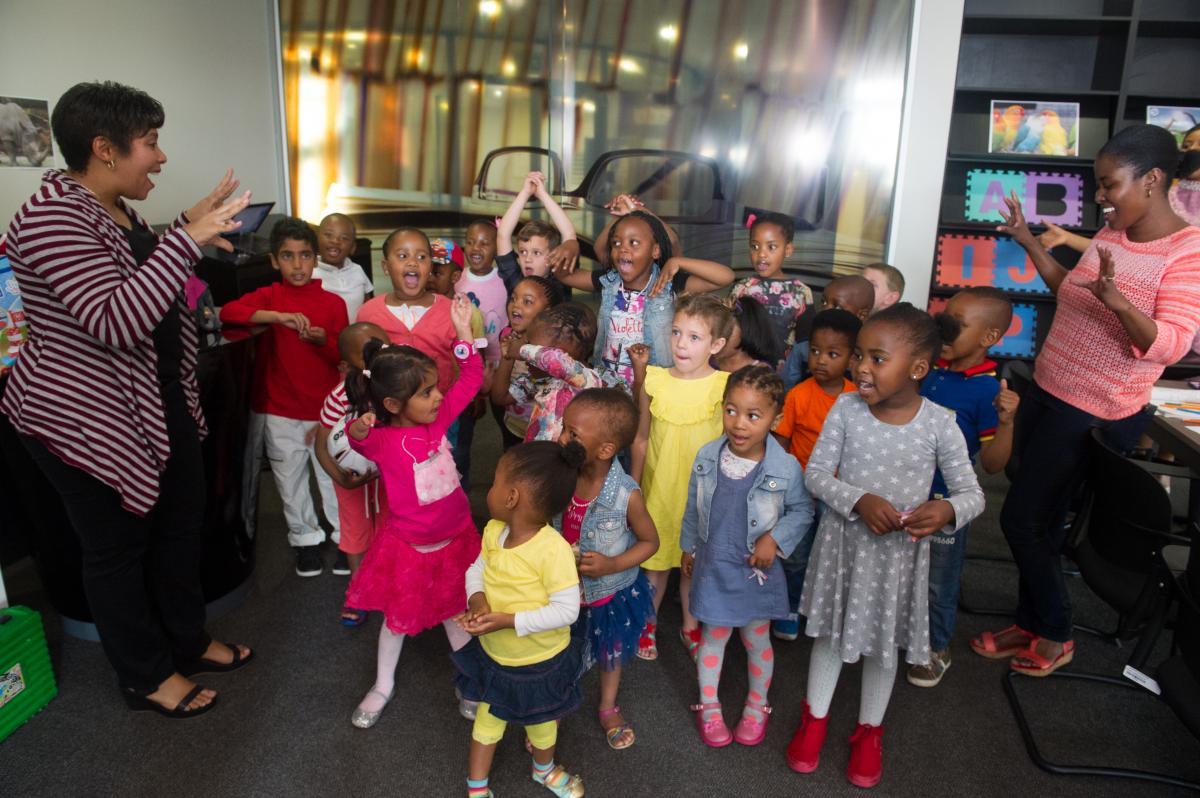
The Minister said over the Medium-Term Expenditure Framework (MTEF) period, a conditional grant to the value of R812 million has been allocated for the expansion of ECD services, focusing on rural and informal settlements. The allocation for the current financial year is more than R317 million.
“In addition, government pays child support grants to over 12 million children between 0 and 18 years.” Most of these children are from KwaZulu-Natal.
The Minister encouraged ECDs to register with government so they can gain access to government services including social security, subsidies and overall social protection services.
One of the caregivers at the Ikusasalethu ECD Nokuthula Shabalala is proud to be working at the centre. I am urging other teachers to better themselves by gaining ECD qualification. This will improve the lives of the children they teach and also help them to open their own ECDs,” she said.
In December 2015 Cabinet approved the National Integrated Early Childhood Development Policy. “It is through this policy that government re-commits itself to the provision of access to quality early stimulation, education and care for all the children, especially, children in poor communities.
The policy is a step towards ensuring that every child, irrespective of their family background and living conditions, is given a better start through investment in the early years as clearly projected in Vision 2030 of the NDP,” said the Minister.
Imbokodo IyazenzelaImbokodo Iyazenzela
Imbokodo IyazenzelaImbokodo Iyazenzela lebang“Imbokodo Iyazenzela was launched in 2015 and has reached over 3 000 women in 16 towns across KZN to date.”
A mentorship programme run by Ithala Development Finance Corporation is helping women in rural and township areas realise their dreams of becoming entrepreneurs.
The programme is designed to help micro-level Small, Medium and Micro Enterprises (SMMEs) grow and sustain their businesses.
The initiative is part of phase three of Ithala’s Imbokodo Iyazenzela programme, which is a pillar of support to women entrepreneurs in KwaZulu-Natal (KZN) who require access to finance and resources to grow their enterprises.
Imbokodo Iyazenzela was launched in 2015 and has reached over 3 000 women in 16 towns across KZN to date.
Cutting Edge Business Solutions is formally and regularly mentoring and coaching the top 20 participants in the 2017 programme to help them improve their businesses and make them sustainable. The mentors’ role is to help maximise mentees’ business revenues by providing them with effective marketing ideas and financial literacy lessons, improving their administrative skills and helping them to be compliant with the legal requirements for running a business.
“After traversing KZN to identify the bottlenecks preventing aspiring business women from reaching their full potential in phase one of Imbokodo and thereafter putting them in touch with our esteemed partners to overcome their challenges in phase two, the finalists have experienced tangible business growth,” said Sitandiwe Dimba, Ithala’s Corporate Social Investment Coordinator.
The four broad categories of hindrances identified during the outreach were access to markets, finance, business support, and marketing and sales.
Mbali Shinga (44) owner of Ubuhle Bozalo Trading says she has benefited from the programme.
“My mentor, Zandile Nkala, helped immensely to brand and market my business. I have taken it upon myself to start mentoring members of my community, especially the youth, by conducting ‘entrepreneurship talks’ to motivate them to start their own businesses,” she said.
Thulani Mazibuko, the managing director of Cutting Edge Business Solutions, said Shinga, has stood out as a mentee and shown significant progress through the mentorship programme.
“Shinga’s business currently employs 29 people in permanent positions. Her company has its own logo, letterhead and a website that will soon be accessible.
Jobs: Department of Justice and Constitutional Development - Oct 2017
Jobs: Department of Justice and Constitutional Development - Oct 2017 JoyDeputy Director: Financial Reporting Services
Reference: 17/29/CFO
Package: R657 558 – R774 576 per annum (All inclusive). The successful candidate will be required to sign a performance agreement.
Requirements: A Bachelor’s Degree or National Diploma (NQF level 6) in Financial Accounting qualification; A minimum of 5 years relevant experience in financial accounting/ management environment
of which a minimum of 3 years should be at management level; Experience in the compilation of Internal/ Annual Financial statements according to Modified Cash Standards; Knowledge of Public Finance
Management Act and Treasury Regulations/Departmental Delegations and DFI; Knowledge of SCM prescripts and BAS; A valid driver’s licence.
Enquiries: Ms E. Zeekoei - (012) 315 1436
Closing Date: 13 October 2017
Note: Interested applicants may visit the following website: www.justice.gov.za or www.dpsa.gov.za to view the full job specification of the above positions.
Applications must be submitted on Form Z83, obtainable from any Public Service Department or on the internet at www.gov.za. A Z83 form & CV must be accompanied by original certified copies of qualifications, identity document and a driver’s licence where necessary. A SAQA evaluation report must accompany foreign qualifications.
Applications that do not comply with the above mentioned requirements will not be considered. All shortlisted candidates for SMS posts will be subjected to a technical exercise that intends to test relevant
technical elements of the job, the logistics of which will be communicated. Following the interview and technical exercise, the selection panel will recommend candidates to attend a generic managerial competency assessment (in compliance with the DPSA Directive on the implementation of competency based assessments). Candidate will complete a financial disclosure form and also be required to undergo a security clearance. If the candidate is applying for an OSD post, certificates of service must be attached to the CV. The DOJ&CD is an equal opportunity employer. In the filling of vacant posts the objectives of section 195 (1) (i) of the Constitution of South Africa, 1996 (Act No: 108 of 1996), the Employment Equity
imperatives as defined by the Employment Equity Act, 1998 (Act No: 55 of 1998) and relevant Human Resources policies of the Department will be taken into consideration.
Reasonable accommodation shall be applied for People with Disabilities including where drivers licence is a requirement. Shortlisted candidates will be subjected to a personnel vetting process. Correspondence will be limited to short-listed candidates only. If you do not hear from us within 3 months of this advertisement, please accept that your application has been unsuccessful.
The department reserves the right not to fill these positions. Women and people with disabilities are encouraged to apply and preference will be given to the EE Target.
www.justice.gov.za @DOJCD_ZA DOJCD
Jobs: Department of Labour - Oct 2017
Jobs: Department of Labour - Oct 2017 JoyDirector: Advocacy and Stakeholder Relations
Centre: Branch: Inspection and Enforcement Services, Head Office
Reference No: HR 4/17/9/01HO
Salary: All inclusive R948 174 per annum
Enquiries: Ms F Mncanca Tel: (012) 309 4774
Head Office
Chief Director: Human Resources Management, Department of Labour, Private Bag X117, Pretoria, 0001
Deputy Director Beneficiary Services (2 posts)
Office: Provincial Office: Mpumalanga
Reference No: HR 4/4/7/38
Enquiries: Ms D Chiloane, Tel: (013) 655 8870
Provincial Office: Free State
Reference No: HR 4/4/8/118
Salary: All inclusive: R657 558 per annum
Enquiries: Ms NP Douw-Jack, Tel: (051) 505 6203
Provincial offices
Chief Director: Provincial Operations: Mpumalanga, Department of Labour, Private Bag X7263 WITBANK, 1035
Chief Director: Provincial Operations: Free State, Department of Labour, PO Box 522, BLOEMFONTEIN, 9300
Closing date for applications: Monday, 16 October 2017 at 16:00
For full details of the advertised posts visit our website: www.labour.gov.za
Applications must be submitted on form Z83, obtainable from any Public Service Department or on the internet at www.gov.za/documents. The fully completed and signed form Z83 should be accompanied by a recently updated, comprehensive CV as well as recently certified copies of all qualification(s) including a Senior Certificate and ID-document [Driver’s license where applicable].
Non-RSA Citizens/Permanent Resident Permit Holders must attach a copy of their Permanent Residence Permits to their applications.
Should you be in possession of a foreign qualification, it must be accompanied by an evaluation certificate from the South African Qualification Authority (SAQA). Applicants who do not comply with the above-mentioned requirements, as well as applications received late, will not be considered. The Department does not accept applications via fax or email. Failure to submit all the requested documents will result in the application not being considered. Correspondence will be limited to short-listed candidates only. If you have not been contacted within eight (8) weeks after the closing date of this advertisement, please accept that your application was unsuccessful. Suitable candidates will be subjected to a personnel suitability check (criminal record, citizenship, credit record checks, qualification verification and employment verification). Where applicable, candidates will be subjected to a skills/knowledge test.
All shortlisted candidates for SMS posts will be subjected to a technical competency exercise that intends to test relevant technical elements of the job, the logistics of which be communicated by the Department. Following the interview and technical exercise, the selection panel will recommend candidates to attend generic managerial competencies using the mandated DPSA SMS competency
assessment tools. Successful candidates will be appointed on a probation period of 12 months. The Department reserves the right not to make any appointment(s) to the above post. The successful candidate will be expected to sign a performance agreement.
The Department of Labour is an equal opportunity affirmative action employer. The employment decision shall be informed by the Employment Equity Plan of the Department. It is the Department’s intention to promote equity (race, gender and disability) through the filling of this post(s) with a candidate whose transfer / promotion / appointment will promote representativity in line with the
numerical targets as contained in our Employment Equity Plan.
Stay in touch with the department, visit: website: www.labour.gov.za | Facebook: Department of Labour | twitter: @deptoflabour
Jobs: SASSA
Jobs: SASSA JoyChief Executive Officer
(Five-year fixed-term contract)
Salary: R 1,782,687.00 per annum plus 10% non-pensionable HoD Allowance. This inclusive remuneration package consists of a basic salary, the states' contribution to the
Government Employees Pension Fund and a flexible portion that may be structured i.t.o. the applicable rules.
Location: Head Office - Pretoria ( Ref No: A3/2017)
Requirements: An undergraduate qualification (NQF level 7) and a post graduate qualification (NQF level 8) as recognised by SAQA PLUS 8-10 years' experience at a senior managerial level of which at least three (3) years' experience must be within any Organ of State as defined in the Constitution, Act 108 of 1996.
Competencies: Strategic capability and leadership. Programme and project management. Financial management. Change management. Knowledge management. Service delivery innovation. Problem-solving and analysis. People management and empowerment. Client orientation and customer focus. Communication (written and verbal). Honesty and Integrity. Attributes: Ability to initiate and support organizational transformation and change. Ability to explore and implement new ways of delivering services that will contribute to the improvement of organizational processes and to build the highest standard of ethical and moral conduct. Ability to provide vision, set organizational direction and inspire other to deliver on the organizational mandate. Ability to work together with civil society, business, academia and international community.
Key Responsibilities: Ensure the effective and efficient management, administration as well as payment of social security grants in South Africa. Provide strategic direction and leadership to ensure continuous improvement of social grants service delivery. Ensure efficient management and administration of the Agency, including the effective utilisation and training of staff, the maintenance of discipline, the promotion of sound labour relations and the proper use as well as care of state property. Render support to the Government and develop as well as implement social security policies. Ensure that policies and legislation are drafted to achieve the strategic goals set by the Minister of Social Development for the Agency. Develop effective strategies and programmes to give effect to policies and legislation. Manage communication and dissemination of information on the social development sector.
Preference will be given to African Female / PWD followed by Coloured Female, respectively as at the time of appointment.
Direction to candidates: (a) Curriculum vitae with a detailed description of duties, the names of two referees and certified copies of qualification and identity document must accompany your signed application for employment (Z83); (b)In the event of hand delivery of applications, applicant must sign an application register book as proof of submission; (c) All shortlisted candidates will be subjected to a technical exercise that intends to test relevant technical elements of the job, the logistics of which will be communicated. Following the interview and technical exercise, the selection panel will recommend candidates to attend a generic managerial competency assessment (in compliance with the DPSA Directive on the implementation of competency based assessment). The competency assessment will be testing generic managerial competencies using the mandated DPSA SMS competency assessment tools. (d) The successful candidate for a SMS post will sign an employment contact and an annual performance agreement, complete a financial disclosure form and will also be required to undergo a security clearance. (e) If the candidate is applying for an OSD post, certificates of service must be attached to the CV. (f) It is the applicant's responsibility to have foreign qualification evaluated by the South African Qualification Authority (SAQA). (g) Failure to submit the requested documents will result in your application not being considered. (h) Personnel suitability checks will be conducted on shortlisted candidates and the appointment is subject to positive outcomes of the checks (i) Correspondence will be limited to shortlisted candidates only. (j) The selection of candidates will be done with due regards to the relevant aspects of the selection process as set out in the Public Service Regulation, 2016, Chapter 4/67. (k) Applications received after the closing date will not be taken into consideration. (l) No faxed or e-mailed application will be considered. (m) If you have not been contacted within three months after the closing date of this advertisement, please accept that your application was unsuccessful. (n)
Candidate requiring additional information regarding the advertised post may direct the enquiries to the person as indicated below. (o) Internal applicants must submit and register their employment application at the register book in the DSD reception area for the attention of Ms E Steenkamp. (p) It is our intention to promote representivity (race, gender and disability) in the Public Service through the filling of this post and candidates whose transfer / promotion/appointment will promote representivity will receive preference.
Forward your application, quoting the relevant reference number, to: The Director General, Department of Social Development, Private Bag X901, Pretoria 0001 or deliver by hand at the HSRC Building, 134 Pretorius Street, for attention: Mr D Chinappan. Enquiries: Mr D Chinappan Tel: (012) 312 7504.
If you have not been contacted within 3 months after the closing date of the advertisement, please accept that your application has been unsuccessful.
Visit us at www.sassa.gov.za or toll free: 0800 60 10 11
Closing Date: 15 October 2017
SASSA is a dynamic organisation that provides a range of essential services to a diverse group of South Africans. With offices countrywide, our operational structures aspire to embrace all that is state-of-the-art, offices that are modern and an environment designed to stimulate the worker to achieve, enjoy, progress and prosper.
Lesotho to receive security support
Lesotho to receive security support JoyThe SADC Double Troika Summit of Heads of State and Government has approved the deployment of a contingent force comprising of military, security, intelligence and civilian personnel who are expected to support the government of Lesotho.
The Southern African Development Community (SADC) Double Troika Summit of Heads of State and Government was held in Pretoria to discuss the political and security issues of Lesotho. The summit was chaired by President Jacob Zuma as the Chairperson of regional bloc.
“In the interim, the summit approved an expanded mandate and composition of a total of 34 members of the oversight committee to include military, security, intelligence and civilians and experts to be deployed to Lesotho for a period of a month,” SADC Executive Secretary, Dr Stergomena Lawrence Tax said.
She said the summit directed the Chiefs of Defence and Security to assess the requirements and determine the appropriate size of the contingent force and to prepare the modalities for the deployment.
Dr Tax was addressing delegates at the summit convened after the recent political and security developments in Lesotho. Among other things, the Commander of the Lesotho Defence Force Lieutenant General Khoantle Motsomotso was assassinated on 5 September reportedly by army officers in his military headquarters.
“[The] summit strongly condemned the brutal assassination of Lieutenant General Motsomotso and expressed condolences to the family of the late commander, government and the people of the Kingdom of Lesotho,” she said.
President Zuma expressed concern at the killing of Lieutenant General Motsomotso, saying that it sets a dangerous pattern.
“The tragic death of Lieutenant General Motsomotso should not be allowed to pass by unnoticed by our regional organisation, especially because it happens two years after the killing of [Brigadier Mahao],” President Zuma said, as the Chairperson of SADC.
President Zuma called on all Basotho, led by the government and teaming up with all national stakeholders, to work together for peace, security and stability in the Kingdom.
“As a region, we are committed to assist the Government and people of Lesotho to implement all SADC decisions including the required constitutional, security sector, parliamentary, public sector and judicial reforms."
The reforms have to be owned and led by the Basotho, with SADC providing technical assistance and advice.
He urged the Government and people of Lesotho to work towards finalising all the required reforms within a period of 18 months consistent with the extended tenure of the SADC Oversight Committee.
Love your bones
Love your bones LondekileIn October the world commemorates Osteoporosis Day. The condition is estimated to affect 200 million women worldwide - approximately one-tenth of women aged 60, one-fifth of women aged 70, two-fifths of women aged 80 and two-thirds of women aged 90.
Worldwide, osteoporosis causes more than 8.9 million fractures annually, resulting in an osteoporotic fracture every three seconds. It is not only women who are susceptible to osteoporosis and recent statistics indicate that osteoporosis in men is on the increase. 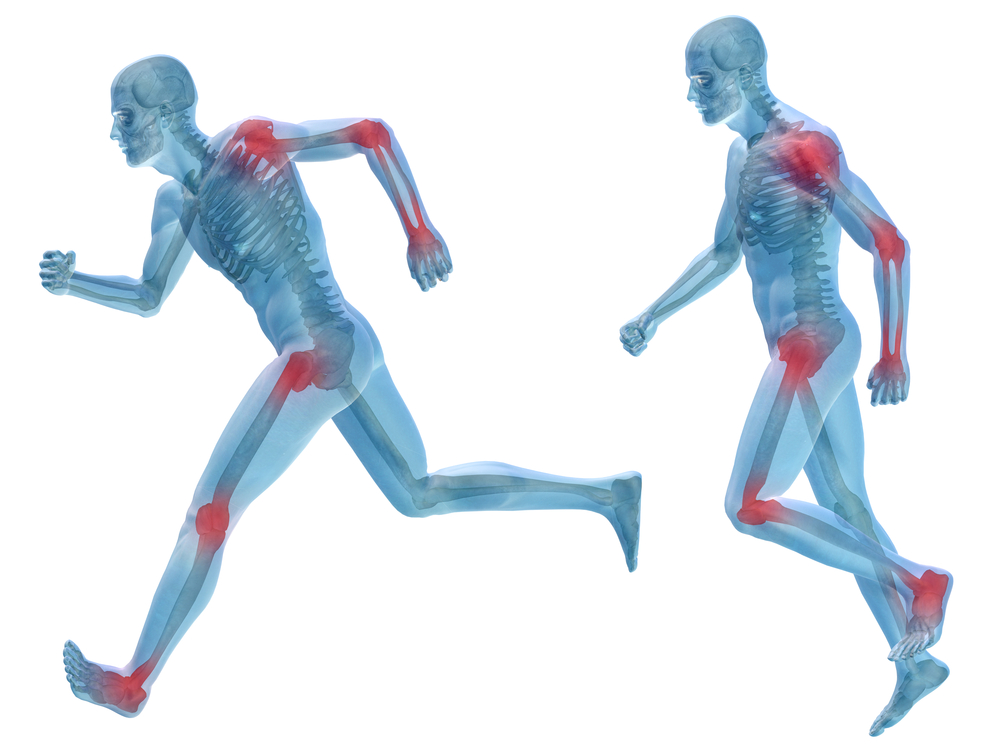
What is osteoporosis?
Osteoporosis is when the bones in the body become weak and more likely to break. As the bone loses strength and density, the inside of a healthy bone, which usually has very small spaces like a honeycomb, increases in size due to osteoporosis. At the same time, the outside of bones grows weaker and thinner.
Also referred to as the ‘silent disease’, it can progress undetected for many years and its presence is usually only discovered after experiencing a fracture. People with osteoporosis most often break bones in the hip, spine, and wrist.
Treatment can help, but this condition can't be cured.
Lifestyle changes lessen the risk of developing osteoporosis.
Diet
A balanced diet containing adequate calories, minerals and vitamins is essential to maintaining good bone health. Calcium, found in dairy products, is the most important bone-building mineral.
Calcium supplements
The diet of many individuals does not contain enough calcium to maintain a positive calcium balance and in these instances it is a good idea to consider calcium supplements. Make sure you get sufficient vitamin D as this enhances calcium absorption. Vitamin D is obtained through diet and is also produced in the skin when exposed to sunlight.
Exercise
Regular exercise promotes higher peak bone mass and also slows down age-related bone loss. Here weight-bearing exercise, such as jogging or stair climbing, is preferable to non-weight bearing exercise, such as swimming.
Stop smoking, limit alcohol intake and avoid bone toxic drugs.
All of the above lifestyle choices have a detrimental effect on bone tissue. Limiting or cutting these out completely is the only way to decrease your risk of developing osteoporosis.
Source: Gems
NDP, five years on
NDP, five years on LondekileAlthough South Africa still has much to do to achieve the targets set out in the National Development Plan (NDP), progress has been made in the provision of basic services, health and education.
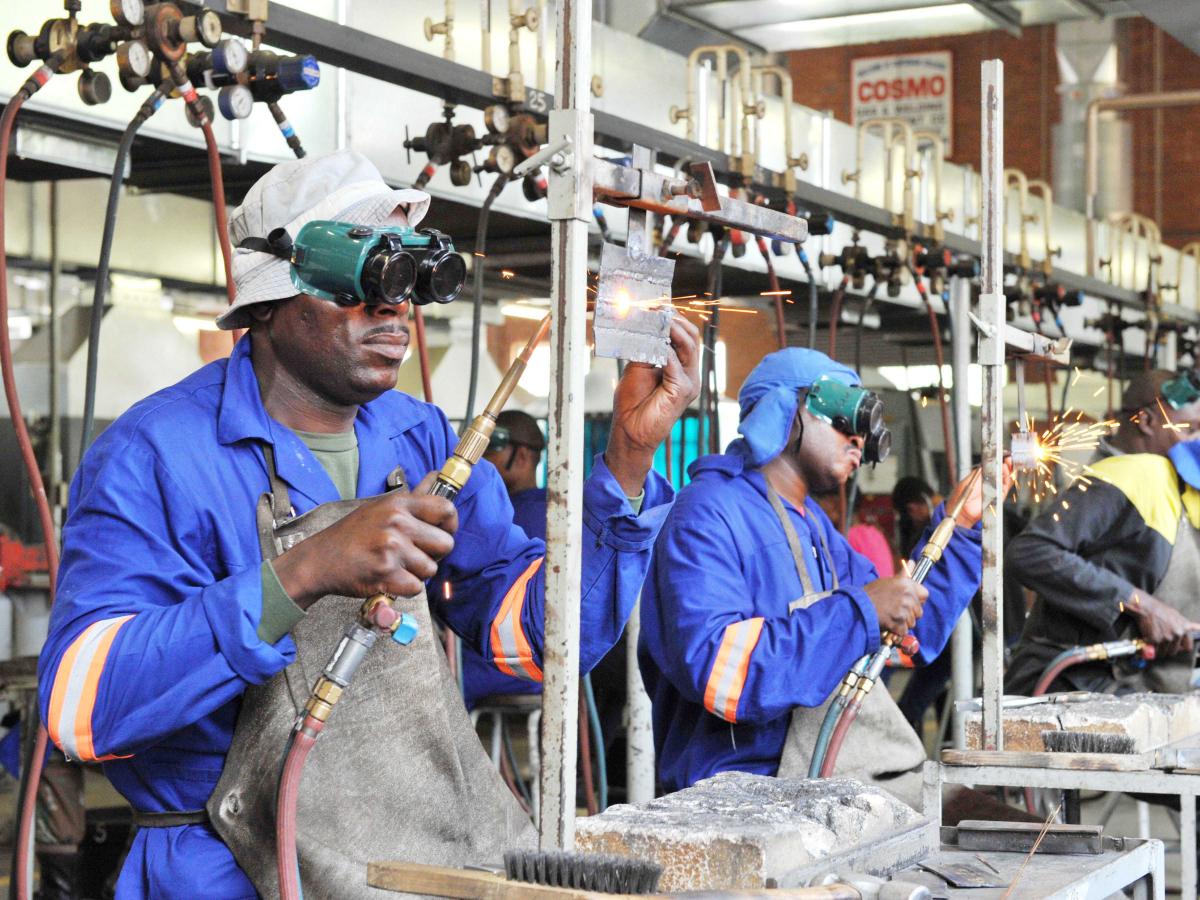 The NDP that Cabinet approved in September 2012 is a plan that aims to create a better South Africa. The targets include reducing unemployment to 16 percent by 2020 and six percent by 2030, and eradicating poverty.
The NDP that Cabinet approved in September 2012 is a plan that aims to create a better South Africa. The targets include reducing unemployment to 16 percent by 2020 and six percent by 2030, and eradicating poverty.
Although South Africa is still far from achieving many of the plan’s targets, it has made notable progress in some areas, says the Minister of Planning, Monitoring and Evaluation in the Presidency Jeff Radebe.
He singled out certain “pockets of excellence” in the performance of government against the NDP 2030 targets, mainly in the provision of basic services, health and education.
Basic services
- Since 2014, almost 725 000 households have been connected to the electricity grid (58 percent of the 2019 target of 1.25 million), while more than one million households were given access to refuse removal between 2013 and 2016, just below the 2019 target of 1.3 million.
- Since 2014, 1.12 million households have received access to decent sanitation (45 percent of the 2019 target) and 305 000 households have gained access to a reliable water service (12 percent of the 2019 target of 2.3 million).
- South Africa’s life expectancy increased by six years, to 63.3 years in 2015. More than 3.7 million people living with HIV are receiving lifelong antiretroviral therapy.
Education
The national matric pass rate improved to 72.5 percent in 2016, (70.7 percent in 2015). Bachelor’s passes rose to 162 374 in 2016 (150 752 in 2014).
Combating corruption
Minister Radebe also pointed to advances made in combating corruption. The number of people convicted for corruption in cases involving R5 million and more doubled between
2013/14 and 2016/17, from 52 to 110.
Land reform
South Africa has also made some progress in land reform. In 1994, white commercial farmers owned 87 percent of land, with 13 percent available for black people. As of 2016, 10.6 percent of the 30 percent target to distribute agricultural land to previously disadvantaged individuals had been achieved.
Poverty eradication
The NDP targets the eradication of poverty for those living on less than R647 a month. Figures fell from 51 percent in 2006 to 36.4 percent by 2011, but have started rising again, reaching 40 percent in 2015. Statistician-General Pali Lehohla has attributed the reversal of those gains over the past few years to drought, low economic growth and rising unemployment.
The challenge of unemployment
With the economy growing at just 0.3 percent last year – against the NDP’s growth target of 5.4 percent – job creation remains South Africa’s key challenge. The unemployment rate was at 27.7 percent in the second quarter of 2017, which is the highest it has been in 14 years. 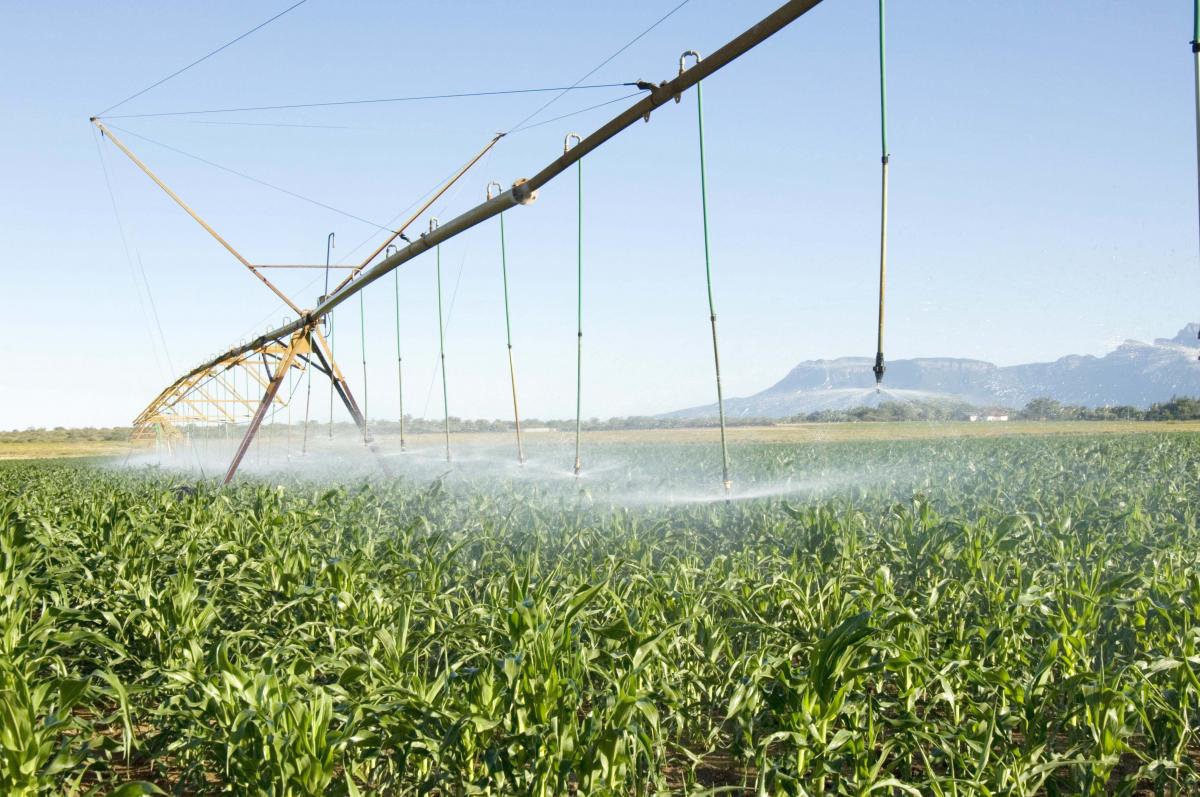
Programmes to grow business
- Despite the slow economy, government has made progress. A R1.5 billion fund for small and medium-sized enterprises has been established by big business. The fund is expected to make its first investments this year. Chief executives of the country’s big companies have also committed to a youth employment programme to place one million youth in paid internships over three years.
- To increase the number of black-owned manufacturing firms, the department also launched the Black Industrialist Programme in 2015. So far, 46 black industrialists have been supported with over R2.1 billion in funding. The target is to reach 100 by March next year. The support to date will allow black industrialists to undertake investment projects of R3.7 billion, creating almost 20 000 direct and indirect jobs.
The NDP is not just a plan for government, but for the whole country. Its implementation requires the involvement of all sectors.
By working together, South Africa may have a better chance of realising the hopes described in Vision 2030 that says: “Once, we uttered the dream of a rainbow.
Now we see it, living it. It does not curve over the sky. It is refracted in each one of us at home, in the community, in the city, and across the land, in an abundance of colour. When we see it in the faces of our children, we know: there will always be, for us, a worthy future.”
Progress reports for each of the 14 outcomes outlined in the NDP can be viewed on the Programme of Action website (www.poa.gov.za) managed by the Department of Performance Monitoring and Evaluation.
Rustenburg to improve public transport
Rustenburg to improve public transport LondekileOne of South Africa’s fastest-growing cities is getting a rapid transport system to put access to public transport within all citizens’ reach.
The Rustenburg Rapid Transport (RRT) system belongs to the people. Called Yarona, meaning “It is ours” in Setswana, it was launched in 2016, and will service 80 percent of Rustenburg’s 3 500km² municipal area.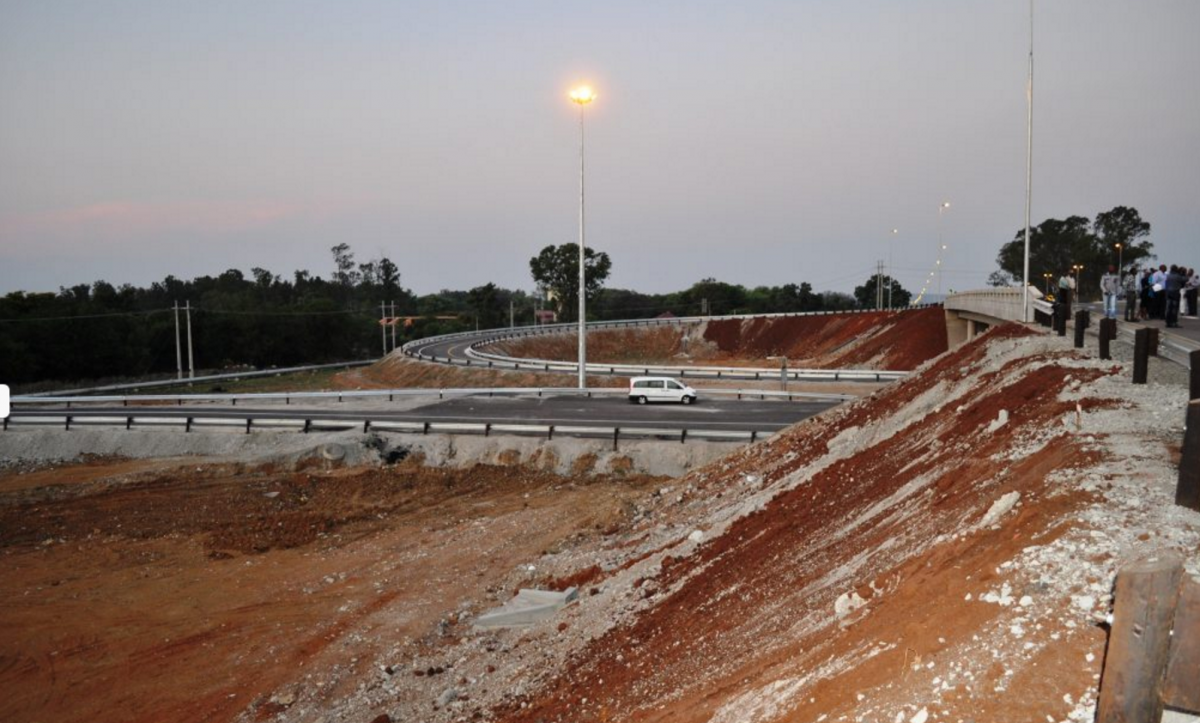
“The Rustenburg Rapid Transport project will provide world-class service to the residents of Rustenburg City and surrounding areas, through an integrated transport network that will include Bus Rapid Transport trunk corridors, direct routes and feeder routes,” said Marks Rapoo, director of the city’s RRT project.
Once complete, Yarona will run along 295km, carrying over 200 000 passengers daily. It aims to link residential, commercial and industrial areas, offering passengers access to public transport within 500 meters of their homes by 2020.
The system will be phased in over the next 10 years. The first two phases are being rolled out. Six state-of-the-art bus stations are being constructed.
“The main objective of the RRT system is to provide new and attractive road-based public transport services. All stakeholders have been engaged, with the bus operating company formed by the taxi association, which will run the system for the next 12 years. Engaging community is vital and in line with ‘Batho Pele’ principles," says the RRT website.
The development of infrastructure for Yarona has created numerous job and training opportunities for people in Rustenburg’s communities. Initially, 946 jobs were created with preference given to locals at the start of construction.
Rustenburg Executive Mayor Mpho Khunou said: “Universal access is a major component of the Yarona system as it accommodates all people, whether they use cars, bicycles, walk or use a wheelchair to achieve mobility.”
It is expected that up to 44 000 people will use the transport service daily.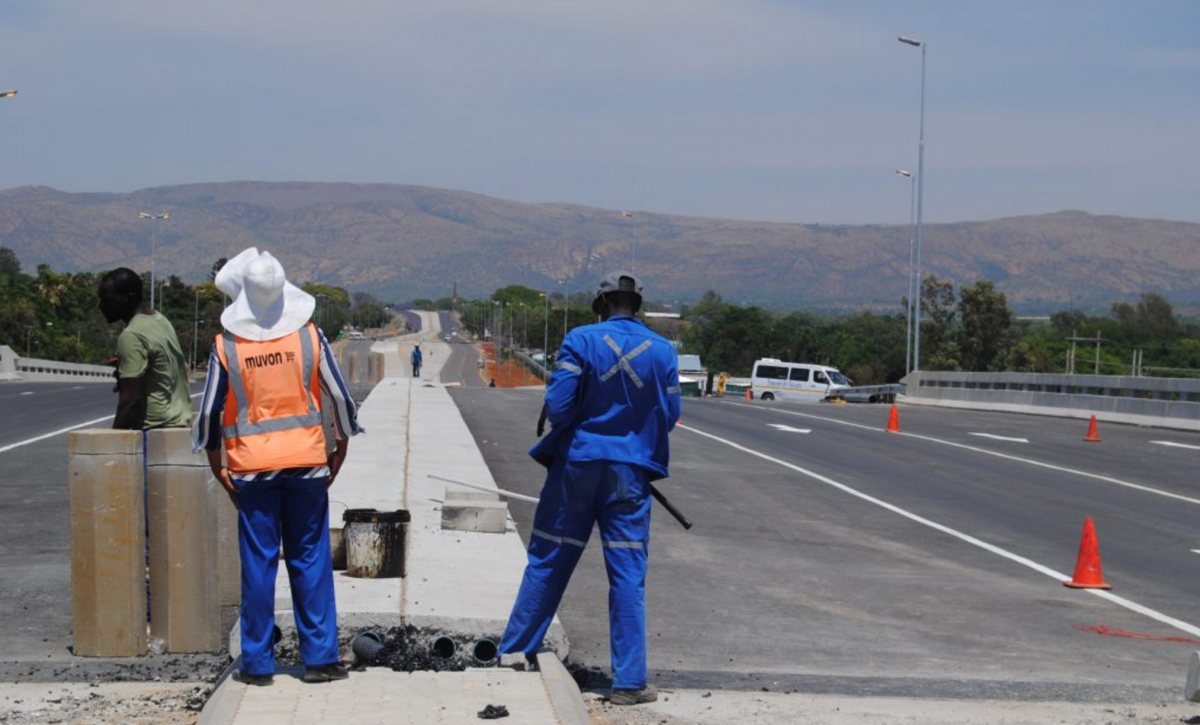
Walkways and paving are being upgraded, with tactile paving for visually impaired people, and pedestrian crossings with audible signals, enhanced by CCTV cameras. This is a crucial component of the city’s goal of creating a “prosperous, caring city with facilities that are easily accessible to all users”.
The Department of Transport identified Rustenburg as one of the 13 cities in South Africa eligible for a bus rapid transport (BRT) system. Johannesburg has the Rea Vaya BRT, Cape Town has the MyCiti system, Durban has the GO!Durban facility, there is GO-George, Harambee in Ekurhuleni, Leeto la Polokwane, and A Re Yeng in Tshwane.
“Rustenburg is one of the fastest-growing cities in South Africa and is taking the lead as a smart African city,” said Rapoo. The city’s R7 billion RRT is expected to be completed by 2021. By then there will be 60 buses running along Rustenburg’s streets, 420 bus stops, and 15 rapid bus stations.
SA seeks bigger benefits for Africa in global economy
SA seeks bigger benefits for Africa in global economy JoyAfrica News
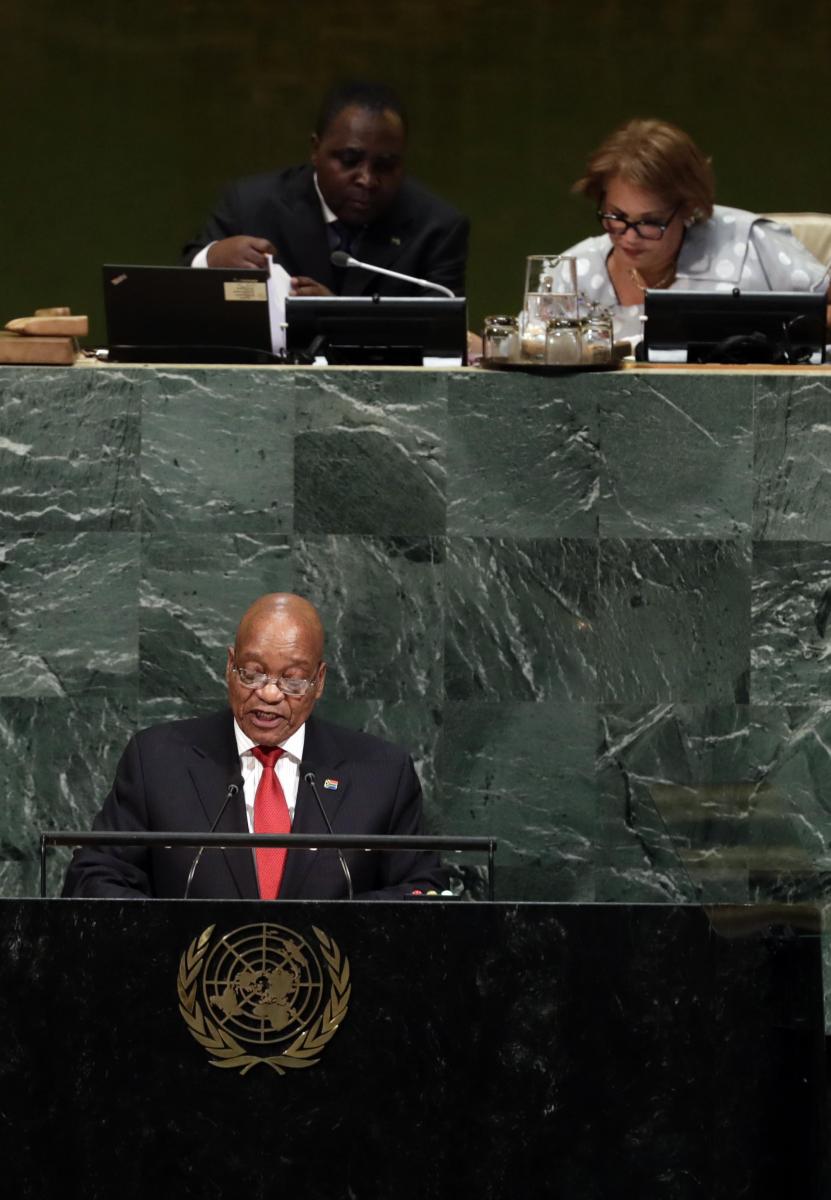 President Jacob Zuma says the United Nations must play a central role in tackling illicit financial outflows and the disparity of the global economy.
President Jacob Zuma says the United Nations must play a central role in tackling illicit financial outflows and the disparity of the global economy.
The president was speaking during the 72nd session of the UN General Assembly in New York. He said the current structure of the global economy continues to deepen the divide between the north and south.
“While a few enjoy the benefits of globalisation, the majority of the people of the world still live in abject poverty and hunger, with no hope of ever improving their living conditions.”
These unequal and unjust economic power relations manifest themselves sharply in Africa. President Zuma said while Africa is endowed with mineral resources, it still has the highest number of the least developed countries.
“Many of the developed countries in the world continue to fuel their development from the resources of the African continent.”
What is needed, the President, said is political will and commitment from global leaders to address the challenges and obstacles posed by this untransformed structure of the global economy.
President Zuma said Africa continues to lose a significant chunk of its resources through illicit financial outflows – billions of dollars which would otherwise be used to develop the continent and provide education, healthcare, housing and other critical basic needs.
The continent loses money through money laundering, tax evasion and tax avoidance, corruption, and transfer pricing by multinational companies.
“[This undermines] the integrity of the global financial system, efficient tax collection and equitable allocation of resources. We appeal for the cooperation and commitment of every member state of the United Nations, and the International community at large to address this phenomenon,” said President Zuma.
He said developed countries, in particular, have a historic and moral obligation to contribute to achieving a fair global economic environment and to eradicate the scourge of illicit financial flows from the continent.
Nuclear for peaceful means
President Zuma used his address to call on UN member states to dismantle their nuclear weapons and instead use them for peaceful means.
“It can no longer be acceptable that a few countries keep arsenals and stockpiles of nuclear weapons as part of their strategic defence and security doctrine, while expecting others to remain at their mercy. We are concerned that any possible accidental detonation would lead to a disaster of epic proportions.”
International relations
President Zuma reiterated that South Africa stands with the people of Cuba and Palestine, and called for the end of the war in Syria and Libya.
The war in Libya contributes a great deal to the destabilisation of the Sahel region and all the way to Central Africa, creating a corridor for illicit trafficking in arms as well as terrorist activities.
“In both instances of Libya and Syria, we strongly cautioned against seeking to resolve internal challenges of sovereign states by imposing foreign solutions through military means.”
Pretoria echoed its stance on the right of the people of Western Sahara to self-determination.
“The United Nations must remain seized with this issue for the benefit of the people of Western Sahara and the African aspirations of integration and peaceful co-existence,” President Zuma said.
President Zuma also expressed South Africa’s disappointment at the June 2017 decision of the US administration to reverse the progress that was registered in the past two years towards ending the Cuban blockade.
President Zuma ended his address by reinforcing South Africa’s readiness to work with the UN to promote peace, human rights and sustainable development.
This month in history - Oct 2017
This month in history - Oct 2017 JoyHelen Joseph is put under house arrest
On Saturday, 13 October 1962 Former political activist, Helen Joseph, fell victim to the Draconian apartheid legislations. She became the first person to be put under house arrest under the Sabotage Act, introduced by the newly appointed Minister of Justice, B.J Voster. The conditions attached to her arrest included a prohibition on leaving her house at night and over weekends and also on receiving visitors.
Source: www.sahistory.org.za
Transport museums take us back in time
Transport museums take us back in time JoySouth Africa’s transport museums allow us to travel back in time and understand and appreciate how much transportation has evolved and improved over the years.
 With vehicles on our roads going faster and faster, Transport Month is a good time to take a quiet stroll through the country’s top transport museums and admire vehicles that got people around 100 years ago.
With vehicles on our roads going faster and faster, Transport Month is a good time to take a quiet stroll through the country’s top transport museums and admire vehicles that got people around 100 years ago.
James Hall Museum of Transport, Johannesburg
This is one of the best transport museums in the country. It has the largest and most comprehensive collection of land transport in South Africa, with over 2 500 items. It was established by the late James Hall, together with the city, in 1964.
Displays in the museum go back to the 1870s. These include horse- and ox-drawn wagons; bicycles and motorbikes dating from 1786 to 1960, including penny-farthings and tricycles; an impressive collection of brilliant red fire engines and fire-fighting equipment; motor cars from 1900 to 1980, including an electric car dating from the 1970s, steam-driven vehicles including a 1900 Clement Panhard vehicle; buses and coaches; several solemn hearses; and solidly-built trams and trolley buses dating from 1896 to 1986.
 Outeniqua Transport Museum, George
Outeniqua Transport Museum, George
Take a train ride down memory lane at the Outeniqua Transport Museum where you will see many old steam trains.
There are 13 different steam locomotives, including a narrow gauge train; the Emil Kessler-Johannesburg first steam engine and now a national monument, imported from Germany in 1889, and transported in pieces by ox-wagon to Johannesburg; the impressive GL Garrett, the largest steam locomotive to be used together with carriages from a bygone era, such as a coach from the Royal Train of 1947; and Paul Kruger’s coach and private saloons, which transported him to Maputo when he went into exile.
Motor Museum, Franschhoek
This museum displays the evolution of the motor vehicle, with over 220 vehicles, ranging from a 1898 Beeston motor tricycle to a 2003 Ferrari Enzo supercar. Antique vehicles are those built before 1904; veteran vehicles were built between 1905 and 1918; vintage vehicles between 1919 and 1930; with post-vintage until 1945, and vehicles built after that period, with examples until 1961.
The Studebaker, Rolls Royce, Buick, VW Beetle, Alfa Romeo, Ferrari, Mercedes Benz, MG, Maserati, and Ford brands are all represented.
 James Hall Museum of Transport
James Hall Museum of Transport
Telephone: 011 435 9718
Hours: 09:00 to 16:30 on weekdays, 09:00 to 16.30 on weekends, closed from 13:00 to 14:00.
Entrance is free.
The Outeniqua Transport Museum
Telephone: 044 801 8289
Hours: 1 September to 30 April:08:00 to 17:00 (except Sundays). 1 May to 31 August: 08:00 to 16.30 weekdays; 08:00 to 14:00 on Saturdays and public holidays. Closed on Sundays.
Entrance: R20 for adults, children under 12 years R10, and children under six years, free.
Motor Museum, Franschhoek
Entrance to the museum is by appointment only. Call 021 874 9002.
Entrance: R80 adults, R60 pensioners, R60 motor club members, R40 children (3 to 12-years-old)
World-class roads for Gauteng
World-class roads for Gauteng lebang“...the department’s allocated budget is R6.8 billion, with R1.9 billion specifically earmarked for transport infrastructure. ”
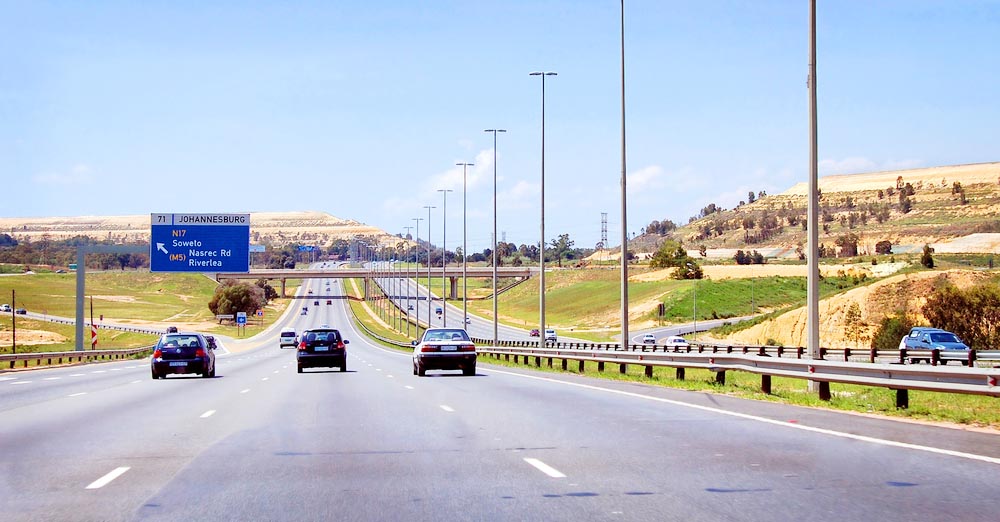 The Gauteng Department of Roads and Transport has spent over R3 billion undertaking heavy and light rehabilitation of the road infrastructure along various corridors in the province since 2014.
The Gauteng Department of Roads and Transport has spent over R3 billion undertaking heavy and light rehabilitation of the road infrastructure along various corridors in the province since 2014.
The department said this was done in line with the Provincial Government’s commitment to providing a world-class road infrastructure.
MEC for Roads and Transport, Ismail Vadi, said the injection of funds into capital projects is meant to facilitate improved mobility, promote economic growth and stimulate the development of small and emerging contractors.
It also aims to maintain the road network in good condition so as to improve road safety.
In the current financial year, the department’s allocated budget is R6.8 billion, with R1.9 billion specifically earmarked for transport infrastructure.
“The provincial roads maintenance grant is being effectively used to keep our network in good shape. Twelve major road rehabilitation projects, such as the N12; N14 and R82 from Eikenhof to Walkerville have been completed.
“Work on the remaining section of the N14 is underway. Twenty-five service providers have been appointed for routine outsourced maintenance,” MEC Vadi said.
As part of the Gauteng Freeway Improvement Plan, nine roads were rehabilitated as alternative routes to e-tolls.
“Benefits to motorists include improved road user mobility; increased roadway capacity; reduced travel times; easy access to business, residential and agricultural estates; and improving general road safety. A number of interchanges along routes have also been improved,” the provincial department said.
It has a road network of 5 638 km, with 1 388km being gravel roads. The network includes 676 bridges and 428 culverts. The total asset value of the network is calculated at R25.5 billion.
“The latest Pavement Network Report shows that 71 percent of our surfaced roads are in a very good, good or fair condition – showing an improvement on the previous report,” MEC Vadi said.
Young chefs cook up a storm
Young chefs cook up a storm lebangWhen the National Youth Chefs Training Programme (NYCTP) began in April 2011 it attracted 800 students. The programme provides theoretical and practical training.
Students who enrolled in the programme at first-year level completed a City and Guilds Certificate in Food Preparation and Cooking (Culinary Arts) and in the second year, on successfully completing the course, they could enrol to complete a City and Guilds Diploma in Food Preparation and Cooking.
For the first time in 2013, the NYCTP trained third-year students.
Those who made it into third year could complete an Advanced Diploma in Food Preparation and Cooking and learn leadership and management skills, as well as menu and recipe development and more specialised cooking skills.
On completing their third year, the NYCTP graduates will have the skills and experience necessary to enter a junior management role.
Department of Tourism Deputy Minister Elizabeth Thabethe recently attended the graduation ceremony held for 89 NYCTP learners who participated in KwaZulu-Natal.
“The various training and development initiatives undertaken by the department continue to enhance and develop skills among young people and enable them to acquire knowledge which allows them to become productive participants in the economy of the country”, said the Deputy Minister.
The department approved the training of 577 learners from all provinces in culinary skills from June 2015 April 2017.
During the training period learners were placed at various hospitality establishments across the country for workplace training.
The South African Chefs Association Senior Vice President Allister Esau said 1 787 qualified chefs took part in the programme thanks to the Department of Tourism.
Esau reported that the class of 2016/17 achieved a 90 percent pass rate in all levels of study.
Out of the 1 500 chefs that graduated from the NYCTP between 2011 and 2016 about 62 percent are permanently employed, 20 percent are continuing their studies and the rest are being assisted to find employment in their chosen field.
Applications for the 2018/19 programme will be advertised next year. For more information visit www.saca.co.za
Young chefs turn their passion into a career
Young chefs turn their passion into a career lebangWhen Zamalotshwa Gama from KwaZulu-Natal completed matric she had no prospects of studying further due to a lack of funds.
She has always been passionate about the hospitality industry and her dream was to become a chef.
Gama’s life changed when she heard about the National Youth Chefs Training Programme (NYCTP).
The Department of Tourism and the South African Chefs Association runs the programme, which targets young people between the ages of 18 and 35.
NYCTP was created to address the urgent need for cooks and chefs in South Africa’s growing hospitality industry.
This programme is also part of the Expanded Public Works Programme as an initiative to fund skills development projects to create employment.
“Being part of NYCTP has been an amazing journey. It all started in 2012 … this day … I am enjoying the journey. Most of us couldn't afford tertiary fees but today we are graduates with diplomas and advanced diplomas,” Gama said at her graduation ceremony, held in KwaZulu-Natal recently.
Gama’s highlight was when she went to the United States of America for her internship.
“I wouldn't have done this without the support of NYCTP,” she said, adding that graduating was not the end but the beginning of great things.